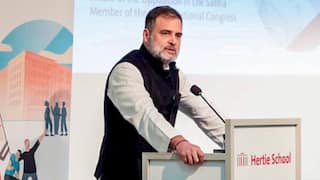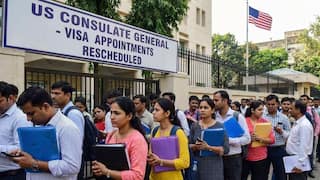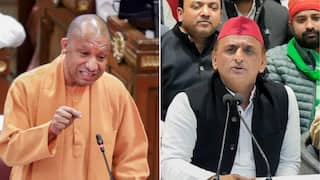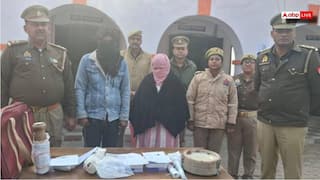Antibiotic Resistance, Disease X, Flu: How India Is Gearing Up To Tackle The Next Likely Pandemic
As India celebrates its 77th Independence Day, we speak with experts to gauge how ready is the country to fight against the next pandemic?

Arboviruses, multi-drug resistant bacteria, Nipah, Marburg virus and the dreaded "Disease X" -- one among them may cause the next Covid-like pandemic if the World Health Organization (WHO) is to be believed. A silent pandemic is also knocking on our doors -- antibiotic resistance.
As India celebrates its 77th Independence Day, with a firm eye on being a developed country in the next 23 years, how ready is the country to fight against the next pandemic?
The coronavirus pandemic exposed the fragility of India's healthcare system. But, the Covid-induced transformation of the healthcare sector in the past two years has shown how health has been prioritized by India more than ever since Independence.
'India Better Prepared After Covid'
Experts said while India was better prepared to tackle a pandemic after Covid from the experiences it had gathered, they pointed out that more work was needed in surveillance and early detection of possible threats.
"The unprecedented Delta-wave tragedy during the April-June 2021 peak taught us crucial lessons on pandemic preparedness, especially with medical oxygen, beds, ICU and ventilator requirements. With the capacity building efforts post-Delta wave, we have achieved all that is required to handle large pandemics or natural catastrophes of the size of the Delta-wave," infectious diseases specialist Dr Ishwar Gilada told ABP Live.
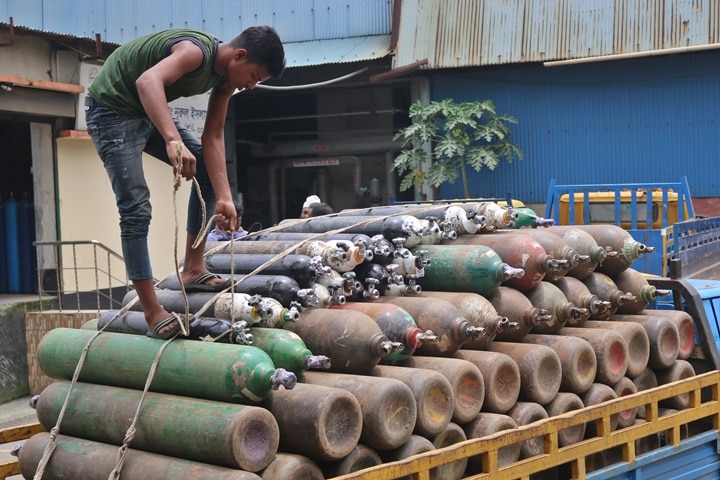
Citing an example, Dr Gilada said India had just 10 RT-PCR labs at the beginning of the Covid-19 pandemic and within a year that expanded to a staggering 10,000 plus.
Dr Laxman Jessani, infectious diseases specialist at Navi Mumbai's Apollo Hospital, pointed out that during the Covid wave, India also battled other outbreaks like Nipah in Kerala, Tomato Flu and monkeypox at the same time.
"So, India is better prepared compared to other countries because India has the resources, better manpower and of course we have good expertise as well," Dr Jessani said.
Seasonal And Zoonotic Influenza To Cause The Next Pandemic?
The WHO has warned that seasonal and zoonotic influenza will likely cause the next pandemic. Three out of four new diseases are zoonotic, which means infections present in animals are increasingly getting transferred to humans.
India has become one of the first nations to frame a strategy in this regard, with Prime Minister Narendra Modi laying the foundation stone for the National Institute for One Health in Nagpur. The institute will focus on identifying novel and unknown zoonotic agents.
Besides, the government has also launched the Pradhan Mantri Ayushman Bharat Health Infrastructure Mission (PM-ABHIM) to augment health facilities and establish comprehensive surveillance of infectious diseases.
"Epidemics and pandemics are here to stay. As we are going towards urbanisation and more deforestation, there will be more zoonotic infections much like the seasonal flu -- that we have seen happening every year but only the strain differs, sometimes it is H1N1 or H3N2," Dr Jessani said.
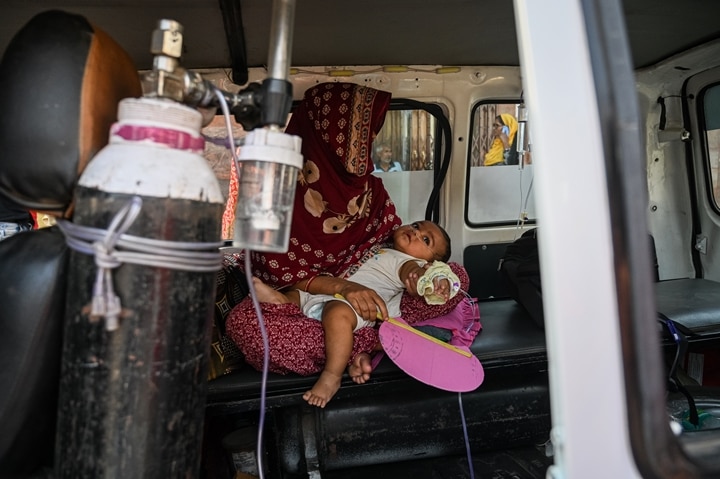
Experts highlighted that most people in India do not take influenza vaccines annually as they are unaffordable. Influenza vaccines, often called 'flu shots', range anywhere between Rs 1,800 and Rs 2,000. "We should make efforts to have low-cost flu vaccines," Dr Gilada said.
However, he said current flu outbreaks in different parts of India were very mild and hospitalisations were miniscule. "Of the estimated 8.7 lakh flu cases in Mumbai, only 13 deaths have been recorded. That's 1.5 deaths per 100,000 cases," Dr Gilada said.
Surveillance And Detection Key To Detect Next Threat
The rise of new pathogens has put in focus the importance of genomic surveillance to track mutation of viruses.
Dr Gilada, who is also the president of AIDS Society of India, said besides whole genome sequencing, India was now focused on expanding next-generation sequencing (NGS), which is a much faster sequencing approach that does not require cloning DNA fragments.
However, Dr Jessani said India still was not totally updated with surveillance mechanisms because it lacks a proper process.
"Organisations like the Centers for Disease Control and Prevention (CDC) of the US are keeping a check on all these new infections. In fact, there is an entire branch in CDC that deals with these new emerging infections," he said.
Dr Gilada said while India too has its own CDC -- the National Centre for Diseases Control (NCDC) -- but the government has failed to empower it.
"In fact, the NCDC should have been tasked and made incharge of handling the Covid pandemic as a public health emergency. The role of ICMR is research and not public health delivery. Making ICMR as a nodal agency to handle the pandemic sent wrong signals everywhere. Rather than empowering existing institutions such as NCDC, we have weakened them, though unwittingly," the infectious disease expert said.
READ | Rising Air Pollution May Be Linked To Higher Antibiotic Resistance Risk, Finds Study
Tackling Antibiotic Resistance — 'The Silent Pandemic'
Calling antimicrobial resistance (AMR) not a future but present threat, Dr Gilada said AMR "will end-up being a major man-made, doctor-sponsored and government-neglected calamity" if timely action was not taken.
Dr Jessani said usage of high-end antibiotics needs to be curtailed and the government's step to restrict over-the-counter sale of antibiotics was in the right direction.
"AMR will only increase in the future and we have to look at bringing newer antibiotics in the pipeline to combat this. Moreover, we need awareness, education among the general public not to consume antibiotics especially for viral infection, because all that you are doing is just inducing AMR," he said.
Check out below Health Tools-
Calculate Your Body Mass Index ( BMI )



























